
Do You Have to Call the Police After a Minor Car Accident in Arizona?
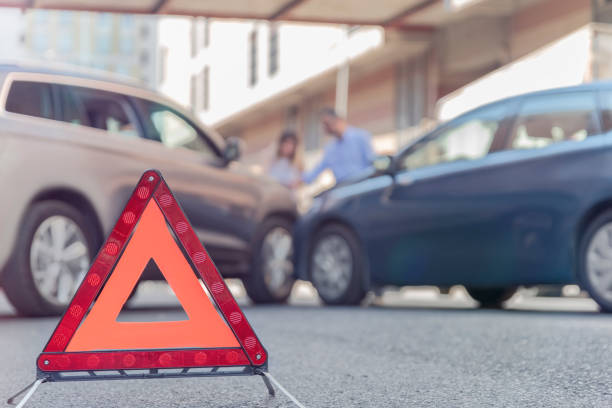 Do you have to call the police after a minor car accident in Arizona? What is considered a minor car accident? These are questions you might have after being involved in a car accident. Not every accident will warrant a police presence, especially if there are no injuries and minor damage. In this article, we’ll cover when you should report an accident to the police in Arizona.
Do you have to call the police after a minor car accident in Arizona? What is considered a minor car accident? These are questions you might have after being involved in a car accident. Not every accident will warrant a police presence, especially if there are no injuries and minor damage. In this article, we’ll cover when you should report an accident to the police in Arizona.
Do You Have to Call the Police After a Minor Car Accident in Arizona?
No, you do not have to call the police after a minor car accident in Arizona. However, if there are injuries or significant property damage, the police need to be alerted immediately. The faster law enforcement arrives on the scene, the quicker involved parties can be assessed for injuries, and the scene can be controlled.
In addition, if you suspect an involved party was operating a vehicle under the influence, it’s important to alert the police. Driving under the influence of drugs or alcohol is a serious offense, even if the accident did not result in injuries or significant property damage.
What Can the Police Help with After an Accident?
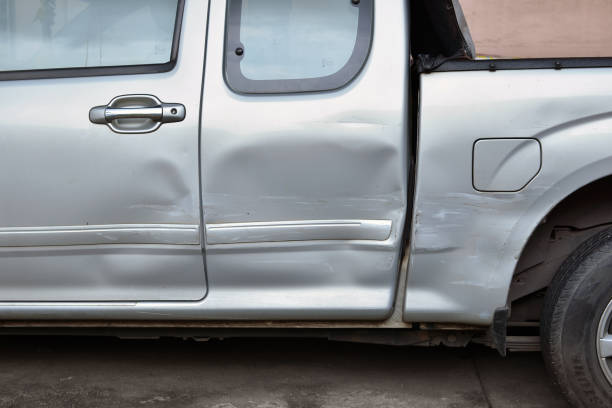
After a car accident, law enforcement controls the scene. First, officers will secure the scene to ensure everyone’s safety. This might include blocking off lanes or controlling oncoming traffic. Scene control is important for tow trucks and medical vehicles to arrive timely and safely.
Next, law enforcement will gather information for a crash report. This includes taking pictures and videos of the scene, writing down eyewitness accounts, and reconstructing the crash. If you need to file a claim with insurance, having the details compiled by law enforcement will be beneficial.
The Benefits of Calling the Police After a Minor Accident

In addition, insurance companies often check for police reports before paying out funds. If there is no police report on file, you have a higher risk of denied claims. Officers who come to the scene of an accident are generally required to create a police report. If the police are never called, you might be missing out on a crucial piece of evidence.
Although you can create a police report after an accident, you risk losing out on key pieces of information and evidence that were left at the scene. This can hurt your chance of a successful claim or lawsuit.
Summary
Even though a minor fender bender doesn’t require you to call the police, it can be beneficial. To discuss your situation with an accident attorney, contact one of our team members at The Law Office of Zayed Al-Sayyed today to schedule your free consultation.

Is AZ a No Fault State?
 Arizona is an at-fault state, meaning the individual who is negligent is responsible for paying damages. However, Arizona’s at-fault rules aren’t always clear-cut, as comparative negligence factors into the accident.
Arizona is an at-fault state, meaning the individual who is negligent is responsible for paying damages. However, Arizona’s at-fault rules aren’t always clear-cut, as comparative negligence factors into the accident.
In this article, we’ll cover what at-fault means in Arizona and the types of damages you can recover if you’ve been in an accident.
Is AZ a No Fault State?
Like most other states, Arizona is an at-fault state. This means if you suffer an injury due to the negligence of another party, you have the right to file a lawsuit or seek damages through the at-fault party’s insurance company.
Since Arizona is an at-fault state, drivers of motor vehicles are required to have liability coverage on all vehicles operating on state roads. This includes $25,000 of liability coverage per person, $50,000 per accident of more than one individual, and $15,000 to cover property damages.
Although Arizona is very clear on the liability coverage required, some drivers do not take out the proper policies. If you’ve been in an accident with an uninsured driver, you can file a civil lawsuit to recover damages.
Understanding Arizona At-Fault Laws
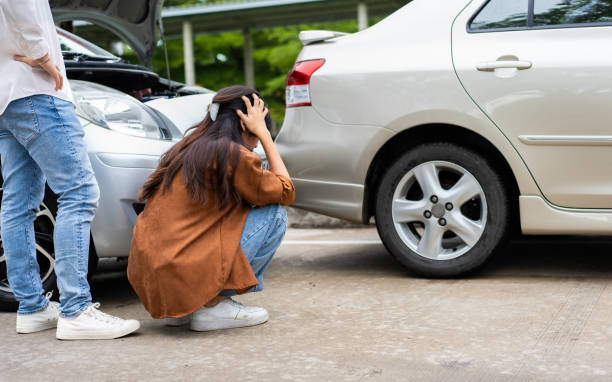 Arizona at-fault laws require claims to prove four key elements. The first element is duty of care. If the driver did not abide by the traffic laws to protect the safety of other drivers, they did not uphold the proper duty of care.
Arizona at-fault laws require claims to prove four key elements. The first element is duty of care. If the driver did not abide by the traffic laws to protect the safety of other drivers, they did not uphold the proper duty of care.
Next, for at-fault negligence to occur, the driver must have breached their duty of care, making it unsafe for other travelers. The third component is causation. The accident must have been a direct cause of the breach of duty. Finally, damages need to have occurred, which can include physical and financial damages.
If you can prove these four components of negligence, the other driver will be listed as at-fault, giving you the ability to recover damages and pursue lawsuits.
Types of Damages
When involved in an Arizona car accident, damages aren’t limited to just property. In fact, you might be able to claim a variety of damages, regardless of whether you are the at-fault party or not. Here are some of the damages that are available:
- Economic Damages – These damages are generally easy to pinpoint and can include the cost of medical care, the loss of income, property repair, and other expenses, like childcare expenses, if you are the primary provider.
- Non-Economic Damages – These are damages that aren’t necessarily physical and include physical and emotional pain, emotional distress, mental anguish, loss of ability to enjoy life, temporary disability, and permanent disability.
- Punitive Damages – Accidents that are the result of egregious behavior can be imposed punitive damages. This is common when the at-fault party intentionally caused the accident or engaged in unsafe actions.
Keep in mind that many of these damage claims will require going to court. Insurance companies are strict on when damages are paid out. If you believe you are entitled to more compensation or damages, it’s best to contact a qualified attorney who can evaluate your case.
Summary
Were you involved in an accident in Arizona? If so, it’s important you work with an expert who can help you navigate Arizona at-fault laws. Schedule your free consultation with The Law Office of Zayed Al-Sayyed today.
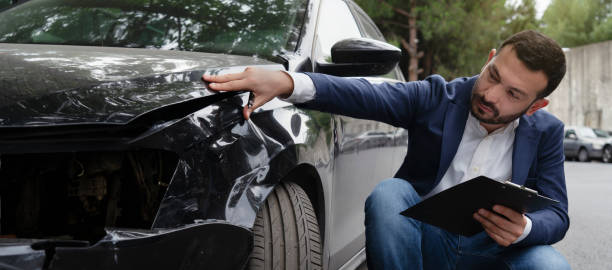
Arizona Car Insurance Laws
 Whether you’re planning to move to Arizona for the first time or have been a long-time resident, it’s important to understand the Arizona car insurance laws you must follow. Like most states, Arizona requires vehicles to maintain a car insurance policy.
Whether you’re planning to move to Arizona for the first time or have been a long-time resident, it’s important to understand the Arizona car insurance laws you must follow. Like most states, Arizona requires vehicles to maintain a car insurance policy.
In this article, we’ll cover the Arizona car insurance laws you need to be aware of, how insurance factors into an accident, and the minimum liability requirements.
What are Arizona Car Insurance Laws?
Arizona car insurance laws require each motor vehicle that operates on state roads to have some form of liability insurance. This law includes non-traditional motor vehicles, like golf carts, mopeds, and motorcycles. Your Arizona car insurance needs to meet the following liability minimums:
- $25,000 for bodily injury or death of one individual
- $50,000 for bodily injury or death of two or more individuals
- $15,000 for property damage
Most insurance carriers understand the minimum liability requirements and can construct compliant policies. These minimums are designed to cover medical and property damage bills when you are at fault in an accident.
The Purpose of Arizona Car Insurance Laws
Accidents can be expensive, from damage to vehicles and property and serious bodily injury. Most individuals can’t afford to pay for these expenses out-of-pocket, which is why Arizona has car insurance laws in place. Most Arizona car insurance providers extend your liability coverage to anyone driving your vehicle, like a family member.
Remember, once Arizona car insurance policies thresholds are exceeded, you are personally liable for any remaining financial obligations. This is why many Arizona drivers take out policies in excess of the mandatory minimums. Similarly, you may need another policy in place if you were involved in a car accident and the at-fault party does not have the proper insurance.
Arizona is an At-Fault State
 Arizona is an at-fault car accident state. This means that the financial responsibility falls on the individual who caused the accident. However, comparative negligence can come into play, which removes a portion of the burden off your shoulders. Nevertheless, be prepared to be personally responsible for any damage or medical bills resulting from an accident you caused.
Arizona is an at-fault car accident state. This means that the financial responsibility falls on the individual who caused the accident. However, comparative negligence can come into play, which removes a portion of the burden off your shoulders. Nevertheless, be prepared to be personally responsible for any damage or medical bills resulting from an accident you caused.
Activating Arizona Car Insurance
Once an accident happens, you will file a claim with your insurance provider, even if you aren’t at fault. If you are at fault, your insurance provider will investigate and begin to make payments. If you aren’t the cause of the accident, your insurance company will pursue a subrogation claim against the at-fault driver’s insurance.
Penalties for Noncompliance with Arizona Car Insurance Laws
Arizona law enforcement usually asks for proof of insurance during routine traffic stops. If you are unable to substantiate your insurance, you could face suspension of your vehicle’s registration or receive a suspended driver’s license.
To get these items reinstated, you will need to pay fees and file proof of financial responsibility. These penalties multiply if you are involved in an accident and do not have the proper insurance coverage.
Involved in an Accident?
Whether you’re the at-fault party in an accident or trying to recover damages from a driver without insurance, it’s important to work with a qualified attorney. Our team at The Law Office of Zayed Al-Sayyed is ready to help you navigate Arizona’s car insurance laws. Reach out today to schedule your free consultation.

Is Arizona a PIP State?
 Is Arizona a PIP state? What type of insurance is required by Arizona law? These are two questions that residents of Arizona find themselves asking, especially when it comes to vehicle accidents.
Is Arizona a PIP state? What type of insurance is required by Arizona law? These are two questions that residents of Arizona find themselves asking, especially when it comes to vehicle accidents.
In this article, we’ll cover Arizona’s stance on PIP, what types of insurance are required, and what to do if you find yourself in a situation with an uninsured individual.
Is Arizona a PIP State?
Arizona is not a personal injury protection (PIP) state. Instead, Arizona is an at-fault state, meaning drivers are not required to have PIP. The at-fault party is responsible for paying all damages associated with an accident.
However, Arizona does offer medical payment coverage, known as MedPay. MedPay provides similar coverage as PIP and helps with the financial burden of injuries you and any passengers sustain in an accident. MedPay is also beneficial if you are injured as a pedestrian or biker, covering bills regardless of whether you were at fault or not.
The Details of MedPay
 MedPay and PIP cover different costs when an accident occurs. PIP covers pedestrian and passenger injuries, medical payments, loss of wages, in-home services, and funeral expenses. MedPay coverage includes injuries to you as the driver or pedestrian, other passengers and pedestrians, medical payments, in-home services, and funeral expenses.
MedPay and PIP cover different costs when an accident occurs. PIP covers pedestrian and passenger injuries, medical payments, loss of wages, in-home services, and funeral expenses. MedPay coverage includes injuries to you as the driver or pedestrian, other passengers and pedestrians, medical payments, in-home services, and funeral expenses.
Although the coverage of MedPay will differ by provider, one of the main differences is the coverage of lost wages. Since Arizona drivers are required to have insurance with minimum liability coverage, MedPay does not include other financial aspects of accidents outside of medical bills.
Moreover, MedPay specifically does not cover property damage and injuries to other drivers. These fall under Arizona’s required liability insurance policies, with drivers needing $15,000 in property damage coverage, $25,000 in coverage for accidents with one person, and $50,000 in coverage for accidents involving more than one person.
Next Steps When Dealing with Uninsured Parties
What happens if you are in an accident with an uninsured party? Who pays for medical bills if they are at fault? Under Arizona at-fault and insurance laws, the at-fault party is responsible for paying damages stemming from the accident. Once insurance policies are used up, the at-fault party is personally responsible for damages.
When an accident occurs with an uninsured party, there is no insurance company to request money from. This often results in the need to bring a lawsuit forward against the at-fault party to recover damages. Damages, such as medical bills, property damage, and even psychological harm, can be recovered with a successful lawsuit.
Finding Your Arizona Attorney
Navigating bringing a lawsuit against an at-fault party without insurance can be complex, which is why it’s best to have a qualified attorney on your side. Even if you are the at-fault party, it’s essential to have an expert weeding through claims that you might be personally liable for.
Contact one of our team members at The Law Office of Zayed Al-Sayyed to schedule your free consultation. Don’t try to guess your way through Arizona laws, especially with Arizona not requiring PIP. Contact a team member today to get started.

Do You Have to Roll Your Window Down for Police in Arizona?
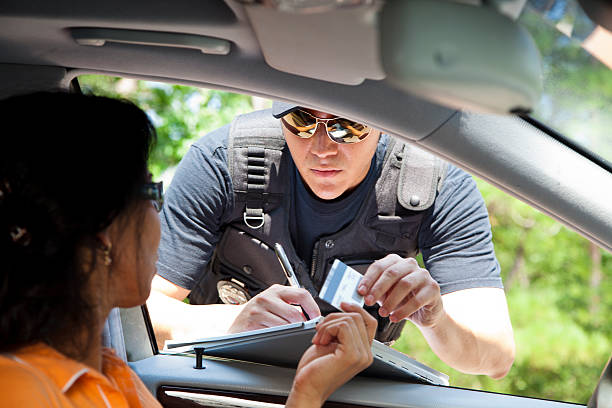 Do you have to roll your window down for police in Arizona? Are you required to hand over your license? How do you tell if the stop is legitimate? Arizona drivers can be pulled over for a variety of reasons, from reckless driving to a routine traffic stop.
Do you have to roll your window down for police in Arizona? Are you required to hand over your license? How do you tell if the stop is legitimate? Arizona drivers can be pulled over for a variety of reasons, from reckless driving to a routine traffic stop.
Understanding your rights in these situations is important, but remember, Arizona law enforcement is trying to keep roadways safe. In this article, we’ll cover if you have to roll your window down, how to determine the legitimacy of a traffic stop, and common information police officers might request.
Do You Have to Roll Your Window Down for Police in Arizona?
If the stop is legitimate, then yes, you do need to roll your window down for police in Arizona. However, there is no law requiring you to roll your window all the way down. Halfway is generally sufficient for Arizona law enforcement.
What If I’m Pulled Over for No Reason?
 There are a few different methods you can use to determine the legitimacy of the stop. For one, think if you’ve done anything to warrant being pulled over. Do you have an updated sticker on your license plate? How about a broken taillight? The officer might catch a traffic violation that you weren’t even aware of.
There are a few different methods you can use to determine the legitimacy of the stop. For one, think if you’ve done anything to warrant being pulled over. Do you have an updated sticker on your license plate? How about a broken taillight? The officer might catch a traffic violation that you weren’t even aware of.
Additionally, requesting to see the officer’s badge is a great way to ensure that you are pulled over by a legitimate officer. You can leave your window rolled up until you verify the identity of the officer. If the officer refuses to show you their badge, keep your window rolled up, drive to a safe location, and call 911.
Remember, the officer should clearly state why they stopped you, whether it be for a routine DUI checkpoint or a minimal traffic violation.
What Information Do I Need?
When you get pulled over by a police officer in Arizona, here’s what you generally need:
- Identification – Usually, your driver’s license is the first piece of information the officer will request.
- Registration – Your vehicle registration proves that you have the right to operate the vehicle, and it is commonly requested during traffic stops.
- Concealed Carry – If you have a firearm in the vehicle, inform the officer right away to avoid escalating the situation.
- Calm Demeanor – When you get pulled over, one of the most important factors is to remain calm. Do not make unnecessary jokes or overshare. Saying as little as possible is usually best.
- Know Your Rights – Knowing your rights is critical, even in simple traffic violations.
If the officer has probable cause and a legal basis, they may request other information, such as supporting documentation for a concealed carry or proof of insurance.
Your Phoenix Traffic Lawyer
If you believe you’ve been unlawfully stopped or received an incorrect ticket, it’s important to contact a qualified Phoenix traffic lawyer. Our team at The Law Office of Zayed Al-Sayyed are your trusted experts, helping you navigate Arizona traffic laws. Reach out today to schedule your free consultation.

Phoenix Bicycle Laws
 What Phoenix bicycle laws do you need to follow? Whether you are an avid cyclist or like to go for a casual stroll every now and then, it’s important to understand the Phoenix bicycle laws you are subject to. In this article, we’ll cover the definition of a bicycle and outline the main bicycle laws you need to be aware of.
What Phoenix bicycle laws do you need to follow? Whether you are an avid cyclist or like to go for a casual stroll every now and then, it’s important to understand the Phoenix bicycle laws you are subject to. In this article, we’ll cover the definition of a bicycle and outline the main bicycle laws you need to be aware of.
Arizona’s Definition of a Bicycle
A majority of the Phoenix bicycle laws are outlined in Title 28 of the Arizona Revised Code. For legal purposes, a bicycle is viewed as a device that is propelled by human power on which a person can ride under Section 28-101(10). In addition, Arizona statutes go into detail describing that bicycles usually have two tandem wheels or three wheels in contact with the ground.
Road bikes, mountain bikes, gravel bikes, beach cruisers, and dirt bikes all fall under this definition of a bicycle. This definition of bicycles can put certain items in a gray area, like children’s bikes and electronic assistant bikes. If you think you are operating a bicycle, it’s probably considered a bicycle for legal purposes.
Understanding Phoenix Bicycle Laws
Here are the main Phoenix bicycle laws you need to be aware of:
Section 28-811
This section holds parents responsible for making sure their children are abiding by bicycle laws. This means that the parent cannot authorize their children to violate guidelines, including rules surrounding use of public roadways.
Section 28-812
This section of Arizona law outlines the legality of bicyclists riding on roadways as long as they follow the same laws as motorists. If you plan on riding on the road, you have both the right and the obligation to follow the same laws applicable to drivers; however, you cannot lose your driver’s license due to cycling-related violations.
Section 28-813
Under this section of Arizona law, bicyclists must use a permanently affixed seat and cannot carry more people than the bike is equipped for. This means that you cannot have someone sitting on your handlebars when riding your bike. Keep in mind that this law only applies when riding on a roadway. If you are riding on private property or at a skatepark, these requirements don’t apply.
Section 28-814
Section 28-814 disallows hanging onto a vehicle when riding your bike.
Section 28-815
There are situations where bicyclists don’t have the same rights and obligations as drivers, including:
- The cyclist cannot keep up with traffic.
- The cyclist is passing another cyclist going in the same direction.
- The cyclist is turning left.
- The cyclist is moving to the center or left-hand lane to avoid a hazard.
- The lane is too narrow for the cyclist to travel safely.
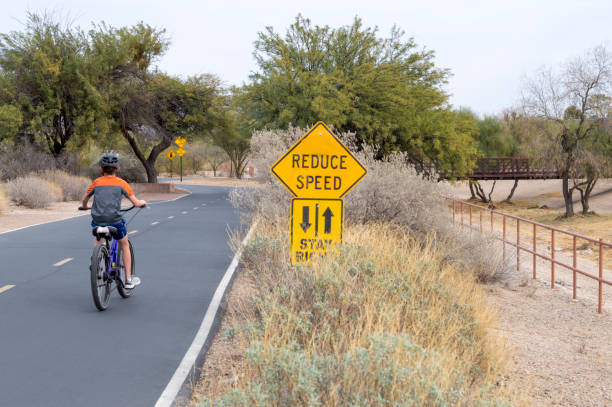
Section 28-816
Section 28-816 allows cyclists to carry baskets, bags, or panniers if safely attached to the bike. Additionally, one hand can be used to carry items.
Section 28-817
This section requires Arizona bicyclists to have the proper brake systems, headlights for nighttime riding, read reflector or lights, sirens and whistles.
Section 28-819
This section outlines regulations for electric bicycles, solidifying that assisted bikes and pedal-operated bikes are considered bicycles under Arizona’s definition.
Summary
Understanding how these regulations impact your situation, it’s important to consult with a qualified attorney. Reach out to our team at The Law Office of Zayed Al-Sayyed today to schedule your free consultation.

Does Arizona Have a Stop and ID Law?
 Does Arizona have a Stop and ID law? What type of information are you required to give officers? Arizona is a Stop and ID state, making it necessary to provide identification in certain circumstances.
Does Arizona have a Stop and ID law? What type of information are you required to give officers? Arizona is a Stop and ID state, making it necessary to provide identification in certain circumstances.
In this article, we’ll cover the basics of Arizona Stop and ID laws, when an officer can request identification, and what rights you have.
Does Arizona Have a Stop and ID Law?
Arizona is considered a Stop and ID state, which means that law enforcement can require you to show identification if they have reasonable suspicion that you are involved in criminal activity. If officers make a request for your ID, you are legally required to provide identification, like your legal name.
These regulations are outlined in Arizona Revised Statutes § 13-2412. It’s important to note that these identification laws do not require you to carry your ID with you. In addition, anything beyond these basic requirements isn’t necessary, like providing your address or date of birth. You do not need to engage in conversation about your activities and you do have the right to remain silent.
When Can Arizona Law Enforcement Request Identification?
In Arizona, law enforcement can only request identification under specific situations, including:
- Reasonable Suspicion – Under reasonable suspicion, a police officer believes beyond a reasonable doubt that you have committed, will commit, or are committing a crime. This means they have evidence outside of a “hunch.” For example, if someone walks into a store with a mask on, the police officer might have reasonable suspicion that they are planning on robbing the store.
- Lawful Detention—Another instance where Stop and ID laws might apply is when you are lawfully detained by a police officer. This includes traffic stops, investigation stops, and arrests.
Unless one of these two circumstances occurs, you generally do not need to provide a police officer with your ID.
Understanding Your Rights Under Stop and ID Laws
 You do have rights when stopped by the police, including:
You do have rights when stopped by the police, including:
- Right to Remain Silent – While you do need to provide your full name in specific situations, you also have the right to remain silent and not answer any invasive questions, like the nature of your activities.
- Right to Refuse Consent to Search — Police officers generally need a search warrant or probable cause to search your vehicle or belongings. If probable cause or a search warrant cannot be given, you can refuse the search.
- Right to an Attorney — You also have the right to legal representation when detained by the police. Be sure to request an attorney before an interview or interrogation.
For more information on your rights or how to handle a specific situation, consult with an attorney.
Phoenix Legal Assistance
Navigating the complexities of Arizona Stop and ID laws can feel overwhelming. If you’ve been charged, it’s important to consult with a qualified attorney who can walk you through the specifics of your situation. Reach out to our team at The Law Office of Zayed Al-Sayyed today to schedule your free consultation.

Who is Usually At Fault If a Bicycle is Involved in an Accident?

Were you recently in an accident that involved a bicycle? Despite what you might believe, the operator of the vehicle isn’t always at fault. In fact, Arizona bicycle laws outline specific rules that bicyclists must follow to prevent accidents. If any of these regulations are broken, you could be found at fault.
In this article, we’ll cover who is usually at fault if a bicycle is involved in an accident. However, the outcome of your situation heavily depends on the facts of your case, making it important to receive specialized advice. Contact one of our personal injury lawyers to learn more.
Who is Usually At Fault If a Bicycle is Involved in an Accident?
Determining who is at fault for an accident involving a motor vehicle and a bicycle depends on the facts of the accident. For example, if a driver swerved into a bicyclist, they would be found at fault, but if a bicyclist illegally switched lanes, the at fault shifts. Here are instances where a driver might be found at fault:
- The driver is distracted and does not see you.
- The driver is speeding and cannot stop in time.
- The driver is under the influence.
- The driver fails to yield or ignores traffic signs.
- The driver fails to maintain a safe distance.
Bicyclists can also be found at fault for an accident if any of the following occurs:
- The bicyclist ignores traffic signals.
- The bicyclist isn’t using the designated lane.
- The bicyclist is under the influence.
Factoring In Negligence
 In many cases, negligence will be factored into who’s responsible. Arizona follows comparative negligence rules to figure out who is at fault in a bicycle accident. This means that both the driver of the motor vehicle and the bicyclist can be partially at fault and seek damages.
In many cases, negligence will be factored into who’s responsible. Arizona follows comparative negligence rules to figure out who is at fault in a bicycle accident. This means that both the driver of the motor vehicle and the bicyclist can be partially at fault and seek damages.
When comparative negligence is applied, the judge will allocate damages to each party in proportion to their at fault percentage. Even if you are found to be 90% negligent, you can still seek damages from the other party. Monetary damages can compensate you for factors outside of physical injury.
Evidence will be gathered to support the comparative negligence percentages assigned to each party, including a police report, property damage receipts, medical records, witness testimonies, and traffic camera footage.
Recovering Damages After a Bicycle Accident
Being involved in an accident with a cyclist or motor vehicle can be very traumatizing, which is why you can recover damages for more than just physical injury. Here are some of the damages you can pursue:
- Pain and suffering
- Loss of companionship
- Loss of quality of life
- Loss of wages
- Damaged property
- Inconvenience
- Permanent disability
- Bodily injuries, like amputation and scarring
- Loss of bodily functions
Have you experienced any of the above symptoms? If so, it’s important that you contact a qualified attorney who can help you solidify your case and secure damages, regardless of whether you’re 80% liable or 10% liable. Reach out to a team member today to learn more.
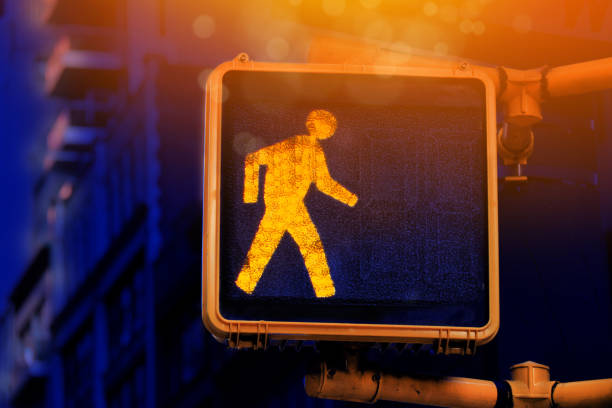
Arizona Pedestrian Laws and Safety 2024
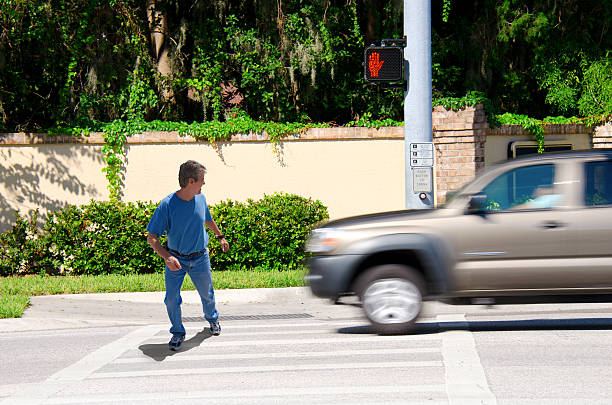 Drivers aren’t the only users of the road according to Arizona laws. In fact, Arizona has specific legislation that pedestrians must abide by to reduce the risk of accidents. Knowing the rules and regulations can help you minimize being involved in an accident.
Drivers aren’t the only users of the road according to Arizona laws. In fact, Arizona has specific legislation that pedestrians must abide by to reduce the risk of accidents. Knowing the rules and regulations can help you minimize being involved in an accident.
In this article, we’ll cover Arizona pedestrian laws and safety requirements, including crossing intersections, sidewalk use, and standing on paved roads. If you have any questions about how these regulations impact your lawsuit or claim, please contact us right away.
Arizona Pedestrian Laws and Safety 2024
Arizona pedestrians must follow the directions of any traffic control devices, pavement markings, signs, and signals. In addition, Arizona defines other regulations to promote the safety of pedestrians and motorists.
Crossing Intersections
Arizona Statute 28-792 states that pedestrians are not allowed to suddenly leave any curb or place of safety when it makes it impossible for a driver to stop. This includes jaywalking, running across the road, and crossing intersections without the right-of-way.
Crossing intersections should only be done through the use of a crosswalk or other designated walk area. Motor vehicles are legally required to stop at these intersections, giving pedestrians the right-of-way. However, it’s always best to double check that the vehicle is stopped before crossing.
Sidewalk Use
 Pedestrians are required to use the sidewalk when available. Walking on a roadway next to a sidewalk is illegal under Arizona Statute 28-796. If no sidewalk is provided, pedestrians must walk on the left side of the roadway or on the shoulder, which is facing oncoming traffic.
Pedestrians are required to use the sidewalk when available. Walking on a roadway next to a sidewalk is illegal under Arizona Statute 28-796. If no sidewalk is provided, pedestrians must walk on the left side of the roadway or on the shoulder, which is facing oncoming traffic.
Crossing the roadway outside of the sidewalk gives Arizona motor vehicles the right-of-way. If an accident were to occur due to walking outside of the defined area, you would be found partly negligent for your actions, reducing your potential damage claim.
Standing on Paved Roads
Arizona also has regulations for standing on paved roads. Pedestrians are not permitted to stand on the roadway when soliciting a ride from another vehicle, conducting business, or conversing with other pedestrians.
Each county in Arizona does have the ability to expand on the laws outlined by Arizona state. If you are wondering about the specific guidelines you should abide by, check out your municipality’s website.
Accidents Do Happen
Arizona pedestrian laws and safety measures can reduce the number of accidents but not entirely eliminate them. If you are the victim of an accident, whether as a pedestrian or motorist, it’s best to contact an attorney right away.
Our team at The Law Office of Zayed Al-Sayyed can help you interpret Arizona safety laws and determine the impact on your case. Arizona is a comparative negligence state, meaning you can still recover damages even if you were 90% responsible for the accident. Maximizing your outcome relies on having the right team working alongside you.

Do Pedestrians Always Have the Right-of-Way in Arizona?
 While the general consensus is that pedestrians always have the right-of-way in Arizona, this isn’t true. Like motorists, pedestrians must also abide by specific roadway rules and regulations. Failure to abide by the necessary regulations can result in deadly accidents.
While the general consensus is that pedestrians always have the right-of-way in Arizona, this isn’t true. Like motorists, pedestrians must also abide by specific roadway rules and regulations. Failure to abide by the necessary regulations can result in deadly accidents.
In this article, we’ll cover the Arizona right-of-way rules that you need to know, including when to yield and the laws cyclists are subject to. If you are still unsure about the pedestrian laws you should follow, contact a team member today.
Do Pedestrians Always Have the Right-of-Way in Arizona?
No, pedestrians do not always have the right-of-way in Arizona. For one, Arizona Statute 28-793 makes it illegal to cross a roadway outside of a crosswalk or other designated walkway. This includes jaywalking and crossing without the proper traffic signals.
Arizona Statue 28-792 also requires that pedestrians do not suddenly leave any curb or place of safety. This means that pedestrians cannot spontaneously cross a roadway without giving drivers enough time to yield. Drivers usually have the right-of-way unless indicated by a traffic signal.
When Do Pedestrians Need to Yield to Drivers in Arizona?
Arizona pedestrians should yield to drivers at intersections, waiting for the driver to come to a complete stop. Failure to yield to drivers in Arizona, even when the pedestrian has the right-of-way, results in accidents.
The driver could be under the influence, speeding, or distracted driving, all of which contribute to the inability to stop. By yielding to the driver, you are protecting yourself from a potential accident.
The same is true for drivers. If a pedestrian is jaywalking or crossing an intersection outside of the designated crosswalk, you need to yield even when you do have the right-of-way. Taking a proactive approach to preventing accidents is a must for Arizona pedestrians and drivers.
Are Cyclists Considered Pedestrians in Arizona?
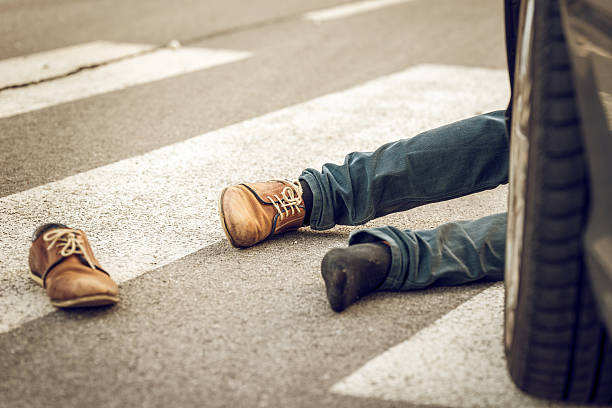
Determining the right-of-way rules for cyclists can be complex. Some cyclists have motorized bikes, which creates a hybrid between pedestrians and motorists. Arizona law differentiates between the two based on where the cyclist is driving.
Cyclists who use the road are considered motorists, while cyclists on the sidewalk are considered pedestrians. In Arizona, cyclists are free to choose where they ride unless there is a local ordinance in place, like in Tuscan.
When riding on the road, cyclists need to follow all of the same rules as motorists, including the direction of travel. In addition, hand signals are also required when changing lanes or crossing intersections.
Finding a Pedestrian Accident Lawyer in Arizona
Have you been the victim of a pedestrian accident in Arizona? Whether you are a motorist or a pedestrian, it’s important that you have the proper representation when working through the next steps after an accident in Arizona.
Our team at The Law Office of Zayed Al-Sayyed can help you decipher Arizona’s pedestrian rules, giving you tangible information on what comes next. Reach out to a team member today to learn more about getting started.
